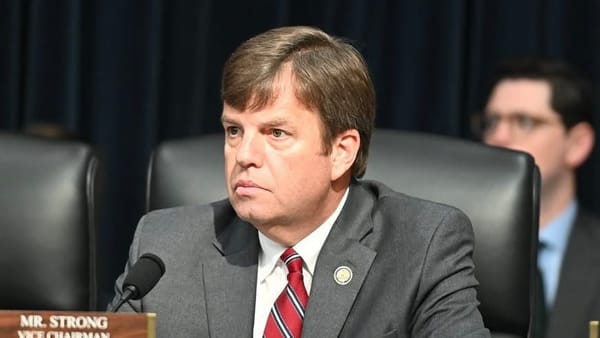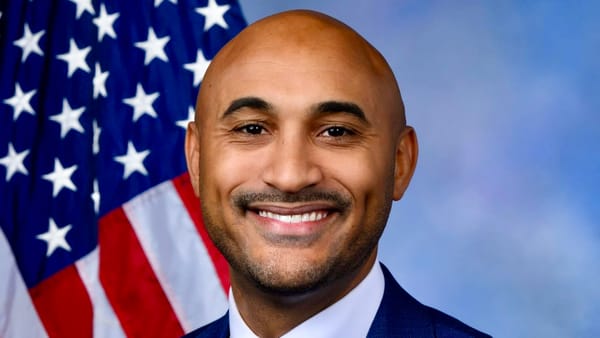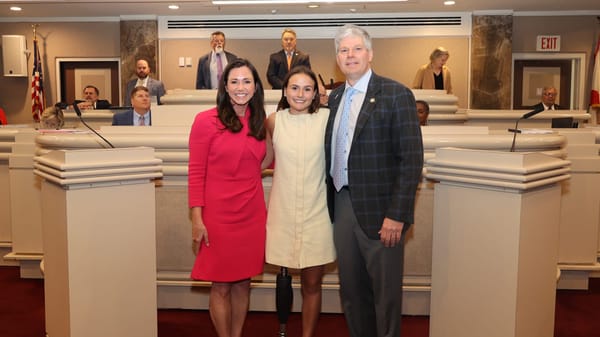Bipartisan SERVICE Act Seeks to Improve Crisis Response for Veterans Through Specialized Law Enforcement Teams
AL Congressmen Strong, Moore, Rogers cosponsor bill

A bipartisan group of U.S. lawmakers has introduced legislation aimed at improving emergency response for veterans experiencing mental health or substance abuse crises. The Supporting Every at-Risk Veteran In Critical Emergencies (SERVICE) Act, introduced by Representatives Dale W. Strong (R-AL5), Lou Correa (D-CA), Maria Elvira Salazar(R-FL), and Glenn Ivey (D-MD), would create a pilot program allowing local law enforcement agencies to establish Veterans Response Teams using grants from the Department of Justice’s Community Oriented Policing Services (COPS) office.
Alabama Reps. Barry Moore (R-AL1) and Mike Rogers (R-AL3) are original sponsors of the bill.
The proposal, supported by nine additional cosponsors from both parties, would authorize funding for law enforcement officers with military backgrounds to respond to emergencies involving veterans. These specially trained teams would be available 24/7 and would also work to connect veterans in crisis with Department of Veterans Affairs (VA) and community-based resources.
“The SERVICE Act is a crucial step toward ensuring our veterans get the care and understanding they deserve in times of crisis,” said Rep. Strong. “This legislation honors their service by meeting them with support, not stigma.”
Rep. Correa emphasized the importance of peer-to-peer support.
“Many of our veterans return home with invisible wounds and respond better to their fellow veterans in times of need,” Correa said. “This common-sense, bipartisan legislation is key to fulfilling our promise to those who’ve offered their lives for our freedom—and will save countless lives along the way.”
The initiative is modeled after a successful program in Cincinnati, Ohio, created by Sergeant Dave Corlett (Ret.), a veteran and former first responder. Corlett, who has over three decades of service, said veteran-led crisis responses are often more effective.
“This program has proven itself in the real world to be a great step in reducing stigma and suicide among military and first responders,” said Corlett.
According to the U.S. Department of Veterans Affairs (VA), 6,407 veterans died by suicide in 2022. Many of those individuals were not receiving VA care at the time. Studies indicate that improved local engagement and broader access to mental health services could help prevent such tragedies.
“Veterans have served us in our nation’s time of need. Now we must keep this sacred covenant to serve our veterans in their darkest hour,” said Rep. Ivey. “This is about doing what’s best for veterans in crisis and helping our law enforcement personnel assist in this effort.”
Rep. Salazar added that the shared experience among veterans plays a key role in crisis de-escalation.
“Nearly 20% of our U.S. law enforcement has served in the military,” she noted. “They are undoubtedly the most well-equipped to respond to other veterans in need.”
The bill has garnered endorsements from a wide range of organizations, including the American Legion, Vietnam Veterans of America (VVA), Hope for the Warriors, the CJ3 Foundation, and the National Policing Institute.
“The SERVICE Act presents an opportunity to improve community relations while saving the lives of our nation’s veterans,” said VVA President Jack McManus.
“By empowering specialized Veteran Response Teams—who truly understand the unique challenges veterans face—communities can respond with compassion,” added Robin Kelleher, CEO of Hope for the Warriors.
Sheriff Eli Rivera of the Small and Rural Law Enforcement Executives Association also praised the bill’s approach:
“This bill presents an opportunity to uphold that covenant, ensuring our veterans receive the care and resources they deserve in their darkest hour.”
The SERVICE Act would also allow COPS grant funding to be used for:
- Training officers on veteran-specific mental health challenges.
- Issuing branch-specific insignia for law enforcement officers.
- Funding overtime for officers serving on Veterans Response Teams.
- Promoting community awareness and VA resource access.
An estimated 20-25% of law enforcement officers have military experience. Advocates argue the initiative not only supports veterans in crisis but could help agencies with recruitment, retention, and reintegration efforts.
Original cosponsors include Reps. Clay Higgins (R-LA), Derek Tran (D-CA), David Valadao (R-CA), Don Davis (D-NC), Barry Moore (R-AL), Dan Goldman (D-NY), Scott Franklin (R-FL), Maggie Goodlander (D-NH), and Mike Rogers (R-AL).
The full text of the bill is HERE.




